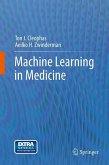Our recent understanding of the cellular and molecular defects and the regulation of the apoptotic signalling pathways has resulted in rationally designed anticancer strategies and the development of novel agents that regulates apoptosis. A comprehensive review of all apoptotic-related anticancer therapies is not the purpose of this book. However, in the volume of this book with 11 chapters, we have described a number of novel apoptotic regulators that have shown promising value and also great feasibility for cancer treatment. These novel agents either occur naturally or are chemically synthesized. While we are excited about the discovery and development of these novel apoptotic regulators as potential anticancer agents, a degree of caution should be always borne in mind when interpreting the success of preclinical pro-apoptotic candidates since potential problems inevitably lie ahead. These problems usually include target specificity, unanticipated toxicity, compound stability, formulation issues, pharmacokinetic and pharmacodynamic profiles. Nevertheless, we believe that this collection of 11 chapters by established leaders in the area of apoptosis will be of great interest to not only academics working in the field of cancer research and apoptosis but also pharmaceutical and pharmacological industries that . We are looking forward to the further development to push these potential agents toward clinical stage.
From the reviews: "This book is appropriate for scientific professionals in the field of basic cancer research, drug development, and cancer medicine, as well as professionals in the pharmaceutical and pharmacological industries. ... This book provides well-summarized information on interesting anticancer agents which have been substantially studied recently on their ability to induce apoptosis in cancer cells. ... The book is a good source of information for the scientific community and medicinal industries who are interested in development of anticancer drugs." (Qi Chen, Doody's Review Service, January, 2013)








